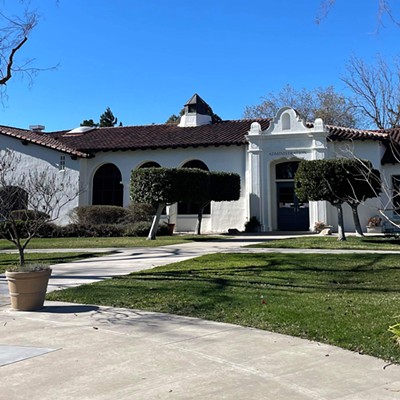A U.S. Department of Labor investigation found Bauer Residential Inc. denied overtime wages to 42 caregivers, violating the U.S. Fair Labor Standards Act, and created a second payroll to hide the fraud, Wage and Hour Division Investigator Philipda Modrakee told the Sun.
“Careworkers are the backbone of our country. They’re low-wage workers, they have to receive hard-earned wages they are legally due and work tirelessly for,” Modrakee said.

Bauer Residential is an adult and senior residential care facility that has four locations in Santa Maria and one in Nipomo. The Wage and Hour Division recovered $545,655 in wages and liquidated damages for 42 affected caregivers—whose payments in back wages and damages ranged from $124 to $22,477 per individual, according to a statement from the Department of Labor—and required Bauer to pay $24,402 for its “willful violations.”
In fiscal year 2022, the Wage and Hour Division recovered $14.9 million in back wages for more than 22,000 workers in the health care industry, according to a statement from the Department of Labor.
The investigation—which included all five locations—found that Bauer required its caregivers to sign away their right to overtime in exchange for an extra $1 per hour—rather than receiving time-and-a-half—violating federal labor laws, Modrakee said.
“They [employers] can ask employees to sign whatever they want, but at the end of the day, employees have to receive time-and-a-half,” Modrakee said. “We’re not going to acknowledge that [agreement] because their right is to receive time-and-a-half if they worked more than 40 hours.”
In addition, Bauer created separate sets of time cards for its employees rather than having one time card for each employee, failing to keep an accurate log of hours worked and resulting in additional record-keeping violations, she said.
“Let’s say one set shows 30 hours and another shows another 30. If they didn’t combine the hours, then we are going to think that they only worked 30, but combining the time cards equals 60 hours,” Modrakee said.
In addition to paying the wages back and violation fees, Bauer also wrote a formal letter to the Department of Labor stating that it will be in compliance with the law moving forward and it is actively making changes to be in compliance, she said.
Bauer Residential Inc. could not be reached before the Sun’s deadline for comment.
Although Modrakee couldn’t go into details about this specific investigation, typically the Department of Labor starts looking into a company through an employee-filed complaint, a random inspection, or a competitor-filed complaint.
As part of the procedures, the department will reach out to the employer to make an appointment where investigators ask how they pay employees and ask for records, and then they will hold interviews with the employees, she said.
While the division tries to expedite each case, conclusions depend on the size of the company, the amount of employees, and the number of violations, Modrakee added.
“Our job is to put all sides of the story together to see if there’s any labor violation or overtime violations, and to see if they are in compliance with the [Fair Labor Standards Act] or not,” Modrakee said.
The department also conducts outreach to employees and organizations, works with Spanish-speaking consulants to answer questions in Spanish, and has online resources and a breakdown of labor laws, Wage and Hour Division Assistant District Director Eduardo Huerta said.
Anyone cooperating with an investigation is protected and there’s on-site prevention against the employer coming back to ask for wages or to threaten employees into providing false statements, Huerta said.
“This is an industry that’s very important to us. … We don’t reveal the names of complainants to employers. It’s completely confidential and protected from any retaliatory acts,” Huerta said. “It’s something that we’re fully open to listening to and ready to address their complaints or issues.”
—Taylor O’Connor












